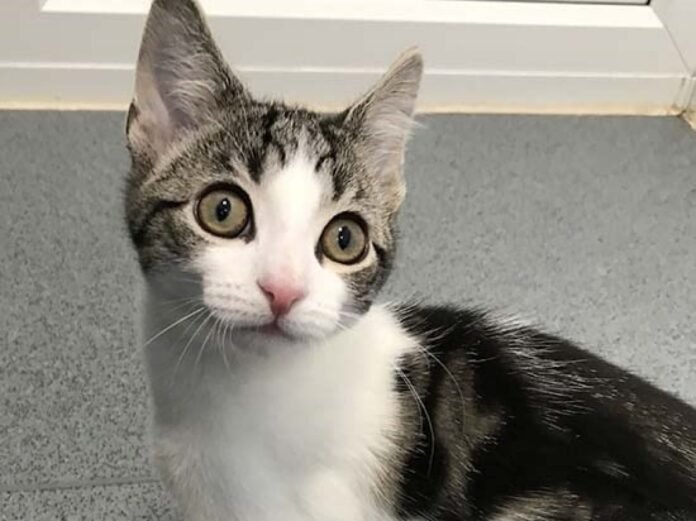For Cats Protection, a British association that helps cats, young Hope is a miracle. The animal has absolutely no genitalia, enough to confuse many veterinarians during an auscultation.
“It’s so rare that there isn’t really a commonly used term”
Cats Protection is the UK’s largest cat protection charity. In almost 100 years, it has housed more than 2 million cats and kittens, she explains on her website. Suffice it to say that her experience usually protects her from surprises. And yet she still manages to surprise her little protégés.
At first glance, Hope is an ordinary 15-week-old cat. The keepers thought it was a female…until her amazing vet exam. “While hermaphroditic cats – which are also extremely rare – have both male and female genitalia, Hope has neither external nor internal.“, explains the association in a press release issued on 7 November 2022. The animal is neither male nor female.
Ovarian tissue may be hiding in his body, but this possibility remains unlikely. “It is so rare that there really isn’t a commonly used term for this condition, but it is actually ‘genital agenesis’ – where agenesis is the absence or failure of development of certain organs in the body, explains Fiona Brockbank, the association’s veterinary manager.
The organization has therefore never encountered such a case, which means that the vets do not yet know if this particular character will have consequences for Hope’s life. However, they made sure that the animal is able to urinate and defecate properly, provided sine qua non upon its adoption. And good news: Hope can be adopted without any problems.
Health risks
Disorders of sexual development are rarely reported in cats, but they can nevertheless have serious consequences. Of course, they can limit the animal’s reproductive abilities, but they can also lead to more subtle health problems.
“Disturbances in sex development are important factors affecting reproduction due to the detrimental effect on fertility, increased risk of gonadal carcinogenesis and associated behavioral problems“, explains in a study published in 2020 in the journal Animal ScienceProfessor Izabela Szczerbal.
Affected animals are usually identified because their external genetic organs show peculiarities. But sometimes problematic behavior, such as aggressiveness, is noticed by the owners, emphasizes the Polish researcher. This is not the case with Hope, a kitten”very playful“and”who loved the staff“, says Cats Protection.
.
